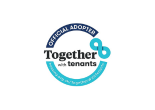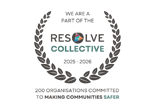Everyone has the right to live peacefully and safely in their home and community. Anti-social behaviour (ASB) can have a serious impact on this, which is why BCHA is fully committed to resolving problems of ASB, with your help.
Anti-Social Behaviour is defined as ‘acting in a way that causes or is likely to cause harassment, alarm or distress to one or more people not of the same household’.
Our tenancy agreements set out clearly what we mean by ASB, the standards of behaviour we expect from all tenants and the action we may take if people carry out ASB.
Our teams work in a multi-agency approach with statutory organisations to tackle and prevent ASB. We also work with other Housing Associations to develop best practices across our industry, as well as with expert voluntary organisations and charities who help vulnerable members of society.
Activities which are not classed as ASB include, but are not limited to:
- Cooking odours
- Children crying or engaging in summer activities such as playing in communal gardens or in the street
- Young people gathering socially – unless they are swearing and being intimidating to individuals
- Being unable to park outside your home
- Every day living noises – such as washing machines or vacuum cleaners during the day
- One-off parties and celebrations Raised voices whilst watching sporting events
- Banging doors
- Heavy footsteps on stairs or bare floors
What can you do?
If it is safe to do so, can you speak to the person causing the nuisance? They may not realise their behaviour is upsetting their neighbours.
What can BCHA do?
If you are experiencing ASB and have been unable to resolve the issue yourself, please contact us.
Contact us about ASB
If you are a BCHA resident, please contact your local Tenancy Officer.
If you are not a BCHA resident, please contact our customer services:
Call: 01202 410 500
Email: [email protected]
We will look at early intervention options such as mediation, as well as legal approaches where appropriate. The type of questions we will initially ask include:
- What is the problem?
- How is it affecting you?
- Why is it happening to you?
- Has it happened regularly?
- Are you the only person who is annoyed?
- Is anyone supporting you through this issue?
- Are you being reasonable with your expectations about what we can do?
- What have you done to try and resolve this yourself?
Depending on the type and severity of your complaint, in most cases, we will contact the other person(s) involved to explain that we are aware of a problem and attempt to resolve matters quickly.
Working Together
If we need to take further action we will need you to collect as much evidence as possible to assist us proving a case in court.
This may include recording dates and times of the offending behaviour. Video and sound recordings are always very useful. We can give you details of a mobile phone App you can do this with. Without this information there is very little we can do to resolve the situation for you.
Remember, if you haven’t reported a problem to us, it may be difficult for us to do anything about it.
Please be advised that all calls will be treated confidentially and our staff are trained to help you in a sensitive and knowledgeable manner.










